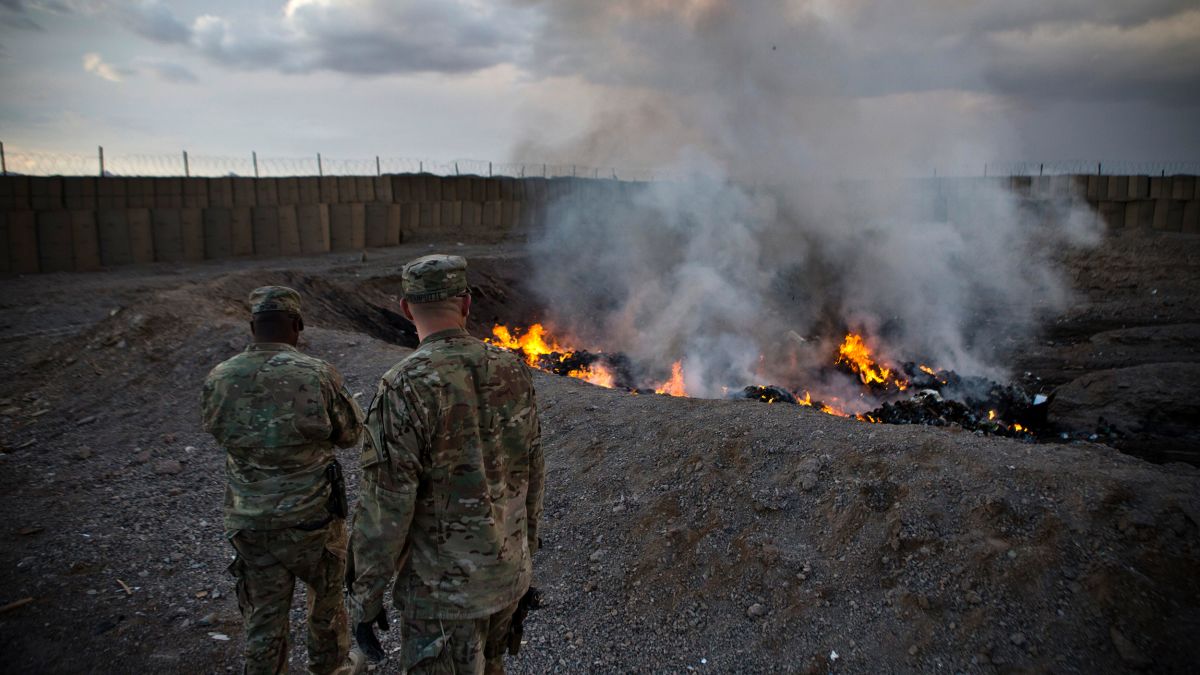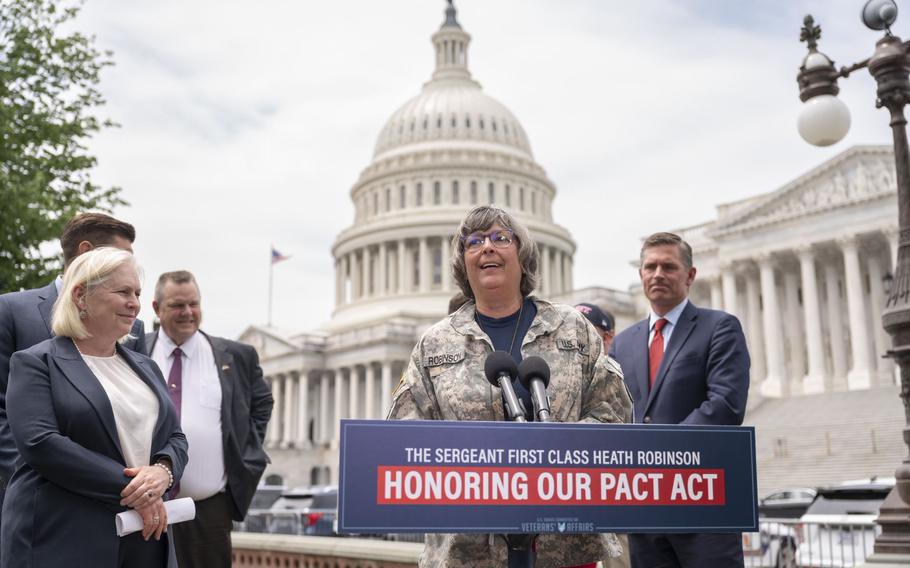Last Thursday, the United States Senate passed historic legislation that would work to expand the eligibility for both health care and benefits to Veterans exposed to burn pits and other toxins.
The bill, which is called the Sergeant First Class Heath Robinson Honoring Our Promise to Address Comprehensive Toxics Act of 2022, or PACT Act, passed by a vote of 844 to 14.
From here, the PACT Act will move to the House for further approval.
The PACT Act seeks to supply an easier path to health care and benefits for Veterans that served near open-air burn pits, which were used throughout the 1990s and post-9/11 wars to burn garbage, jet fuel, and other materials.
Veterans diagnosed with cancer, respiratory issues, and lung disease at young ages have solely blamed their exposure to the toxic fumes let off from these pits, but the Department of Veterans Affairs has in large part contended for years that there was not a sufficient level of evidence to support their claims.
This bill would also actively improve the VA’s workforce and claims processing to help speed up their ability to meet the needs of Veterans and set up over 30 new VA health care facilities in 19 different states. Moreover, it would also expand health care eligibility to post-9/11 combat Veterans and add 23 conditions related to burn pits and other toxic exposures to the VA’s list of service presumptions.
It will also expand the list of presumptions that are associated with Agent Orange exposure to include Thailand, Cambodia, Laos, Guam, American Samoa, and Johnston Atoll, strengthen federal research on toxic exposure and improve the VA’s training and resources.

This past March, United States Senators began negotiations on expanding eligibility for health care and benefits to millions of Veterans exposed to burn pits and other toxins.
The Senate Committee on Veterans’ Affairs discussed the PACT Act, which passed through the House in early March 2022, but the legislation was at odds with a Senate strategy to address the overarching problem of toxic exposure health care.
House lawmakers had proposed a major reform bill, but Senators opted for a more incremental approach to tackle the issue. In February, the Senate passed the Health Care for Burn Pit Veterans Act, which would expand health care to Veterans but does not address any other benefits.
The sponsors of the bill had insisted that the measure is just a first step in a three-phase process that would add more benefits incrementally.
The version of the PACT Act from the House would increase spending by $138 billion over the next decade, according to estimates released by the Congressional Budget Office.
The bill itself is named for Sgt. 1st Class Heath Robinson, who was unfortunately diagnosed with a rare autoimmune disorder, as well as lung cancer after serving with the Army National Guard in Kosovo and Iraq, where he experienced prolonged exposure to burn pits. Sadly, Sgt. Robinson passed away in 2020, he is and forever will be missed.
Veteran’s Family Speaks Out on Legislation
Robinson’s mother-in-law, Susan Zeier spoke last Thursday at a news conference that also featured several prominent Veteran advocates and a few Senators.
Zeier said that she started wearing Robinson’s Army jacket after Rosie Torres, the co-founder of the advocacy group Burn Pits 360 said family members of 9/11 first responders gained momentum to continue pushing forward for legislation after they began wearing firefighter and police jackets.
“I’ve been wearing this since about summer 2018 and today, with this bill passing the Senate, I think it’s time to retire it,” said Zeier.
Comedian Jon Stewart, who has worked tirelessly as an advocate for Veterans on this issue, said that the real work will begin once this bill becomes law.
“This doesn’t solve anybody’s problem,” said Stewart. “It just removes the burden from their fight that never should have been there in the first place.”










